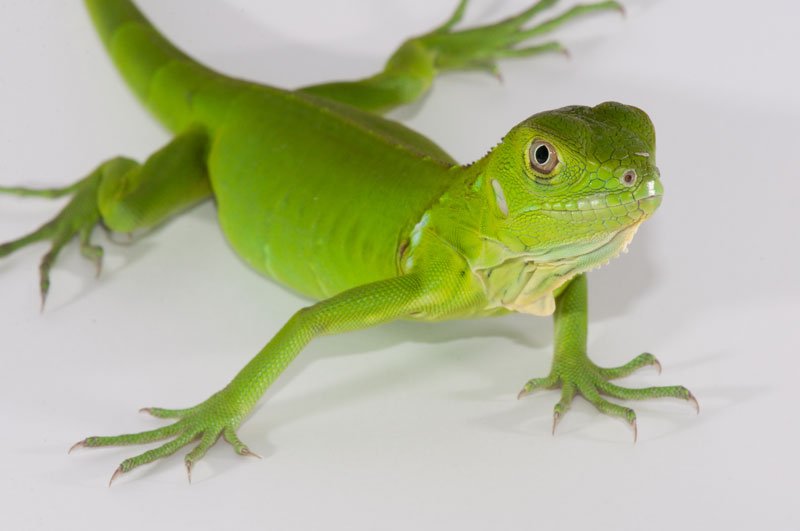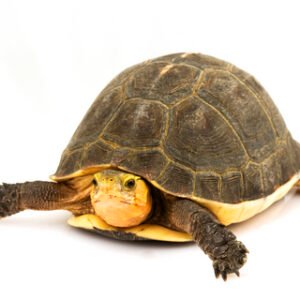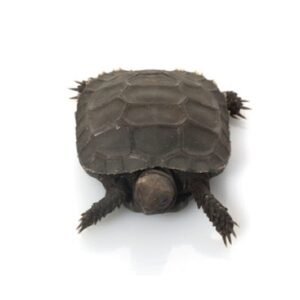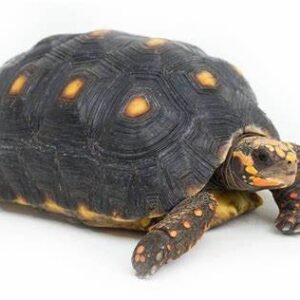Everything You Need to Know About Baby Iguanas
Introduction to Baby Iguanas
Baby iguanas, scientifically known as IGuana iguana, are the juvenile stage of the green iguana. These reptiles are primarily found in tropical rainforests, where they have adapted to a variety of environments ranging from trees to riverbanks. As the offspring of the green iguana, baby iguanas exhibit distinct traits that differentiate them from their adult counterparts, making them fascinating creatures for study and potential pets.
In terms of physical characteristics, baby iguanas differ significantly in size and color compared to adults. At birth, they are approximately 6 to 8 inches long, a stark contrast to adults that can grow between 4 to 6 feet in length. Their young, vibrant green coloration is gradually replaced by a darker hue as they mature, often displaying shades of brown or grey. The brightness of their juvenile coloration serves as both a camouflage and a means of attracting mates as they reach adulthood.
Behaviorally, baby iguanas are surprisingly active and inquisitive. They are omnivorous, requiring a diet rich in leafy greens, fruits, and some insects to support their incredible growth rates. Unlike adult iguanas, which may exhibit more territorial behaviors, juvenile iguanas are generally more social, often seen basking together or interacting playfully with one another in the wild. Such behavioral traits can influence how they are cared for in captivity, where understanding their needs is paramount for proper husbandry and well-being.
Learning about baby iguanas is essential for potential pet owners or enthusiasts, as their specific requirements differ significantly from those of adults. Adequate knowledge will aid in providing a proper habitat, nutrition, and care, ensuring these creatures thrive in both wild and domestic settings. Proper attention to their distinctive characteristics fosters a better appreciation and understanding of these remarkable reptiles.
Care and Maintenance of Baby Iguanas
Proper care and maintenance of baby iguanas is vital to ensure their health and well-being. When bringing a baby iguana into your home, it is essential to provide a suitable environment tailored to their specific needs. A significant aspect of their care involves proper feeding. Baby iguanas are primarily herbivorous and require a diet rich in leafy greens and vegetables. Dark, leafy greens such as collard greens, dandelion greens, and mustard greens should form the foundation of their diet. Additionally, you can offer a variety of vegetables, including bell peppers and squash, while avoiding high-oxalate foods like spinach and kale that may hinder calcium absorption.
Hydration is equally crucial. Ensure that your iguana always has access to fresh, clean water. You can also provide moisture through misting their enclosure regularly, which will contribute to their hydration and help maintain proper humidity levels, an essential factor for their health. Baby iguanas thrive in environments with humidity levels between 60-70%. This can be achieved through the use of a hygrometer to monitor the humidity and a water bowl that will also allow for a more humid microclimate within their habitat.
The housing for a baby iguana should be spacious enough to accommodate its growth. A tank size of at least 20 gallons is recommended, with the dimensions increasing as they mature. The temperature within their enclosure is paramount; maintaining a basking area of approximately 95°F while ensuring a cooler side of around 75°F will allow for thermoregulation. Additionally, providing proper lighting, such as UVB bulbs, is crucial for their metabolism and overall health.
Furthermore, environmental enrichment should not be overlooked. Providing climbing structures, hiding spots, and foliage can stimulate their natural instincts and promote mental well-being. Regularly cleaning and monitoring the habitat will ensure a healthy living space. When all these care aspects are harmonized, baby iguanas can thrive, leading to a long and healthy life.
Common Health Issues in Baby Iguanas
Baby iguanas are vulnerable creatures that require careful attention to ensure their health and well-being. One of the most prevalent health issues in young iguanas is metabolic bone disease (MBD), a condition caused by a deficiency of calcium or vitamin D3. Symptoms of MBD often manifest as an unnatural posture, lethargy, or swollen limbs. To prevent this condition, it is crucial to provide a well-balanced diet that includes leafy greens and appropriate supplements, alongside access to UVB lighting which is essential for calcium metabolism.
Another common concern for baby iguanas is respiratory infections. These infections can occur due to environmental stressors such as inappropriate temperatures or high humidity levels. Signs of a respiratory infection may include labored breathing, nasal discharge, or lethargy. Maintaining a suitable habitat with stable temperatures and adequate ventilation can significantly enhance the overall health of iguanas and reduce the risk of respiratory issues. Regular spot checks in the enclosure for cleanliness and proper heating elements will also aid in prevention.
Parasites are also a significant health threat to baby iguanas. External parasites, such as mites and ticks, can lead to skin irritations and anemia, while internal parasites can cause gastrointestinal distress, manifested by symptoms like weight loss or changes in appetite. Owners should be vigilant for signs of infestation, and regular veterinary check-ups can aid in early detection and treatment. Learning to recognize the signs of trouble and acting promptly when symptoms arise can greatly influence the health outcomes for baby iguanas.
In addition to preventive measures, maintaining regular veterinary check-ups is essential. These routine examinations allow for monitoring of growth, health issues, and necessary vaccinations. The combination of responsible ownership, awareness of symptoms, and timely veterinary care can help ensure that baby iguanas thrive in their captive environments.
Socialization and Handling of Baby Iguanas
Socialization and handling are crucial aspects of raising baby iguanas, as they significantly influence their well-being and behavior. Establishing trust between the owner and the iguana is paramount, as it can facilitate a more harmonious relationship. When beginning the socialization process, it is essential to approach baby iguanas with patience and calmness. Quiet environments can help prevent stress, allowing the reptile to acclimatize to human interaction gradually.
When handling a baby iguana, it is advisable to support its body adequately. This can be achieved by using both hands to create a secure environment. Avoid grasping them tightly, as this may induce anxiety. Instead, allow the iguana some control over its movement. It’s important to familiarize baby iguanas with this type of handling from a young age so they can associate human interaction with positive experiences.
Owners should be aware of the signs of stress in baby iguanas, which can include rapid breathing, attempting to escape, or remaining motionless. Identifying these indicators early can prevent negative interactions and ensure a secure atmosphere for the iguana. If the animal displays signs of distress, it is best to return it to its habitat or allow it some time to relax. Creating a stress-free experience can also involve offering comforts, such as a couple of hiding spots in their enclosure.
Moreover, while baby iguanas benefit from socialization, they also require moments of solitude. Balanced interaction is key to maintaining their independence and natural behaviors. Understanding the need for both socialization and independence leads to a more fulfilling life for both the iguana and its owner. Encouraging gentle interaction while respecting their boundaries can promote trust and foster a healthy bond over time.





